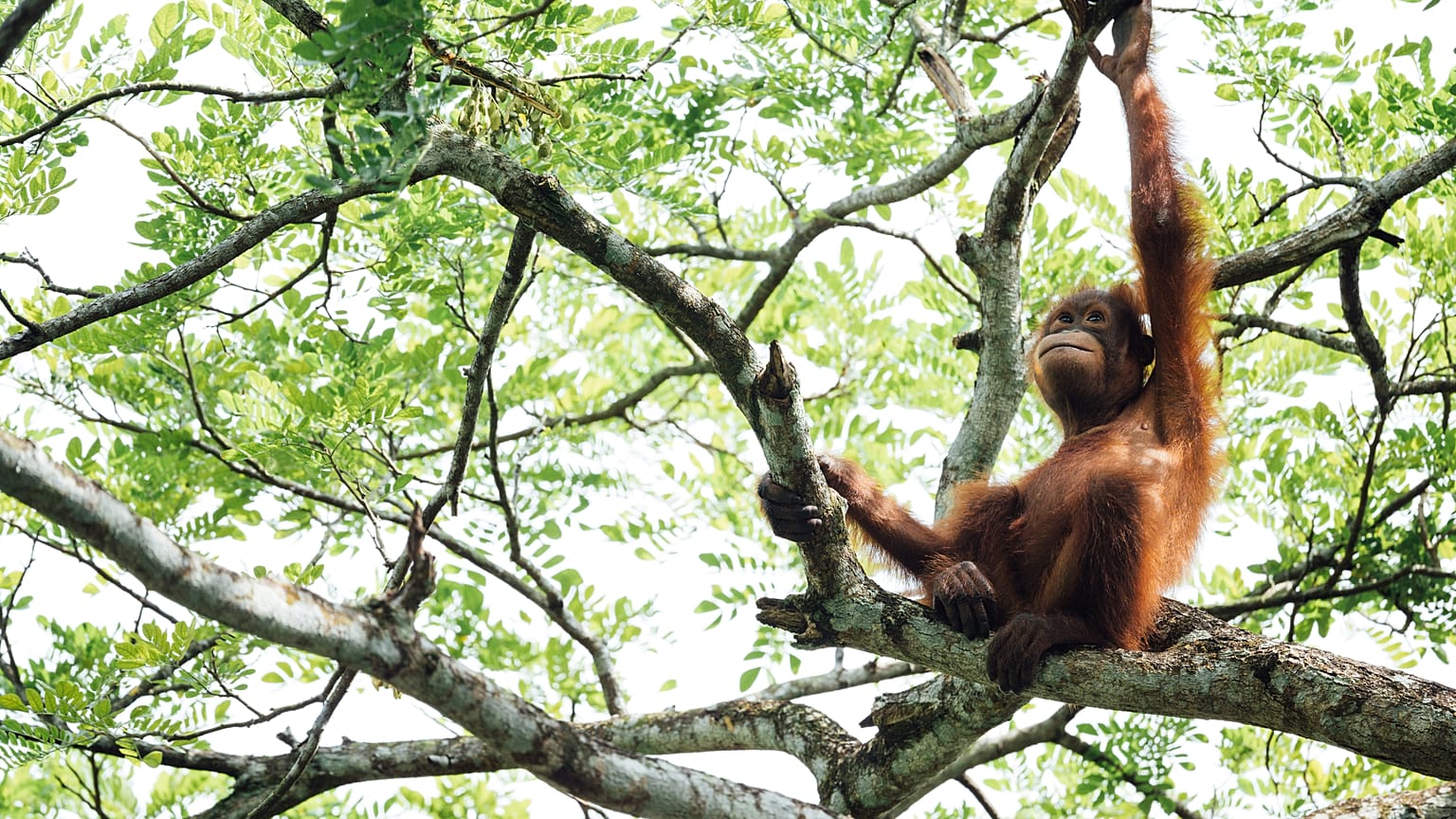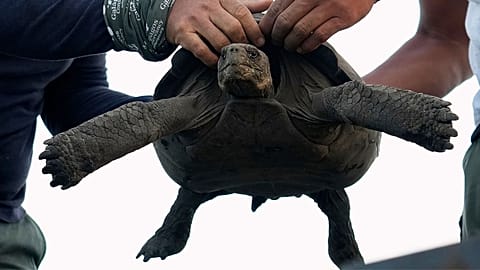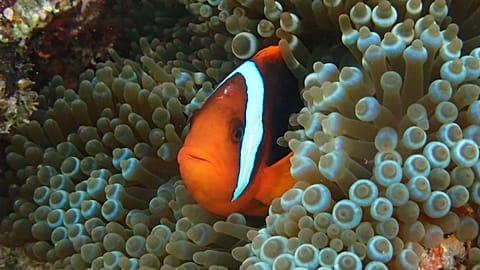In the latest example of animal diplomacy, Malaysia plans to give orangutans to trading partners including the EU, India and China.
Earlier this month, Malaysia announced plans to gift orangutans to countries that buy its palm oil.
 ADVERTISEMENT
ADVERTISEMENT
 ADVERTISEMENT
ADVERTISEMENT
Dubbed “orangutan diplomacy,” the strategy aims to mitigate the environmental damage of palm oil production.
The commodity is found in over half of supermarket packaged goods from ice cream to lipstick and plantations are a major driver of deforestation in Malaysia. But clearing land for palm oil plantations is destroying orangutan habitats.
The southeast Asian country’s proposed orangutan policy is the latest example of “animal diplomacy,” where living animals are used by governments in their international relations.
Here’s how the system works, which countries have used it and what animal welfare groups say about the practice.
What is animal diplomacy?
Animals have played a role in diplomacy for thousands of years, used by rulers and heads of state as gifts to foster international relations.
Cleopatra is said to have given a giraffe to Julius Caesar while the Caliph of Baghdad Harun al-Rashid presented Charlemagne with an Asian elephant.
Since the beginning of the 20th century, animal diplomacy has developed into a form of soft power, being used to forge and strengthen relationships between countries.
What is China’s panda diplomacy?
Probably the most well-known example of animals in international relations is China’s panda diplomacy.
Beginning as early as 1941, the practice sees the Asian country gift giant pandas to other nations as gestures of friendship, diplomatic tools and conservation efforts.
Indonesia, Thailand, the USA, and the UK have all received pandas from China.
While they are referred to as gifts, since the 1980s the animals have been on 10-year loans and remain the property of China.
Foreign zoos receive the bears at a cost of around $1 million (€926,000) a year for a pair. China uses the money to fund panda conservation practices including building state-of-the-art facilities and establishing protected areas. For the recipient country, it’s the chance to have one of the rarest species on the planet in their zoos.
Other countries have also made use of animal diplomacy. Australia has gifted koalas, Indonesia Komodo dragons and Thailand elephants.
Why is Malaysia giving away orangutans?
In the latest example of animal diplomacy, Malaysia plans to give orangutans to trading partners including the EU, India and China.
“We need to show the countries of the world that Malaysia is a sustainable oil palm producer and is committed to protecting forests and environmental sustainability,” plantations and commodities minister, Johari Abdul Ghani, said on social media.
He added that it would “prove to the global community that Malaysia is committed to biodiversity conservation.” He did not expand on how the orangutan scheme would benefit conservation efforts or sustainability.
The country is under increasing pressure from the EU, which introduced an import ban on commodities connected with deforestation last year.
“The European Commission has long struggled to find a compromise between on the one hand massive imports of palm oil and, on the other hand, preventing palm oil from being a driving factor for habitat destruction (and thus climate crisis),” explains Dr Signe Preuschoft, head of ape protection at animal welfare organisation FOUR PAWS.
Wildlife organisations criticise animal diplomacy
The Malaysian government’s diplomatic strategy has been heavily criticised by animal welfare groups.
“Protecting the forest, which is the natural habitat of orangutans, is the most important step that needs to be taken,” the organisation Justice for Wildlife Malaysia told UK newspaper the Guardian.
“The funds that would have been spent on orangutan diplomacy should be directed towards in situ conservation efforts for these primates and the preservation of their forest home.”
Clearing land for palm oil plantations is one of the biggest factors behind the destruction of orangutan habitat and their dwindling numbers.
“It is obscene, repugnant and extraordinarily hypocritical to destroy rainforests where orangutans live, take them away and give them as gifts to curry favour with other nations,” Stuart Pimm, chair of conservation ecology at Duke University, told CNN.
“It totally goes against how we should be protecting them and our planet.”
Preuschoft also questions the long-term effects of this system on the orangutan population.
“Captive breeding of orangutans in Europe happens primarily in European Association of Zoos and Aquaria (EAZA) zoos. Their breeding success is poor, and the current devastation shows no signs of abating,” she says.
“Where would captively bred orangutans be reintroduced once their habitats are gone?”
In general, Preuschoft and FOUR PAWS see animal diplomacy as an antiquated and irresponsible practice.
“The use of animals like orangutans as diplomatic gifts is a gesture straight out of absolutist times,” she says.
“Gifting animals in general, and in particular individuals of wild animal species that are critically endangered, as a bonus for the purchase of the very commodity that causes their demise is unacceptable and seems very disconnected from reality.”
“The transfer and holding of wild animals in captivity requires careful consideration to ensure it is truly necessary and is the best option to help conservation efforts and provide them with a life worth living,” says David Garrahy, World Animal Protection’s External Affairs Manager.
“If all of these conditions are fulfilled, animal diplomacy should only happen if it brings genuine diplomatic benefits between the countries involved. However, in many situations or instances animals are just not appropriate for transporting out of their natural habitats.”

















